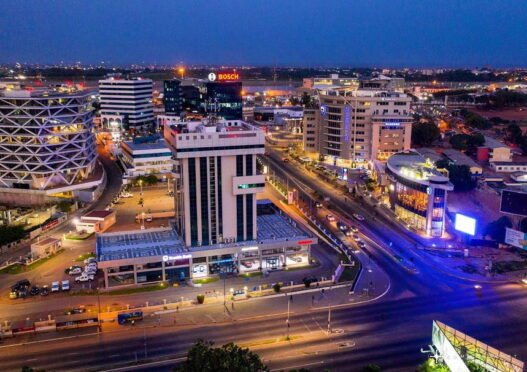Introduction
Rent prices in Accra are skyrocketing, creating significant challenges for residents across the city. From premium neighborhoods like East Legon to traditionally affordable areas like Madina, the cost of housing is becoming unattainable for many. This has sparked concern about the root causes of this trend and what measures can be implemented to provide relief for the city’s growing population.
Causes of the Rent Hike
- Population Growth and Urbanization:
Accra’s population continues to expand rapidly, driven by migration and natural growth. The demand for housing has far outstripped supply, leading to fierce competition for available properties. - Focus on High-End Developments:
Many developers prioritize luxury apartments and gated communities aimed at high-income earners or expatriates. This leaves middle and lower-income families with fewer housing options that fit their budgets. - Rising Construction Costs:
Inflation and the rising cost of building materials have significantly increased the overall cost of new developments. Developers often pass these costs onto tenants, further driving up rent prices. - Weak Regulatory Frameworks:
Ghana’s rent control regulations are poorly enforced, allowing landlords to demand exorbitant upfront payments—sometimes two years’ rent in advance.
Impact on Residents
- Displacement to Peripheries:
Many residents are forced to relocate to areas like Kasoa, Amasaman, and Adenta, where rents are relatively affordable. However, this often means enduring longer commutes, increasing transportation costs, and losing access to central business hubs. - Housing Insecurity:
Families living paycheck to paycheck face constant fear of eviction due to unaffordable rent hikes. The lack of affordable housing creates instability, especially for low-income earners. - Impact on Livelihoods:
High rent expenses eat into disposable income, leaving residents with less money for essential needs like healthcare, education, and savings.
Potential Solutions
- Government-Led Affordable Housing Projects:
The government should prioritize the construction of affordable housing units and partner with developers to cater to middle- and low-income earners. - Strengthened Rent Regulations:
Enforcing rent control laws to cap advance payments and stabilize annual increases could provide immediate relief to tenants. - Tax Incentives for Developers:
Providing tax breaks and other incentives to developers who build affordable housing units can help address the supply gap. - Urban Planning Reforms:
Integrated urban planning that allocates space for affordable housing within central districts can reduce reliance on distant, underdeveloped areas. - Public-Private Partnerships:
Collaborative efforts between the government and private developers can mobilize resources and expertise for sustainable housing solutions.
Conclusion
The escalating rent prices in Accra reflect a broader crisis in urban housing policy and development. Without swift action, the city’s housing gap will continue to widen, deepening inequality and displacing more residents. It’s time for stakeholders—government officials, developers, landlords, and urban planners—to come together and craft sustainable solutions that ensure housing is affordable and accessible for all.
By addressing the root causes and implementing targeted solutions, Accra can become a city where everyone has a place to call home.





















